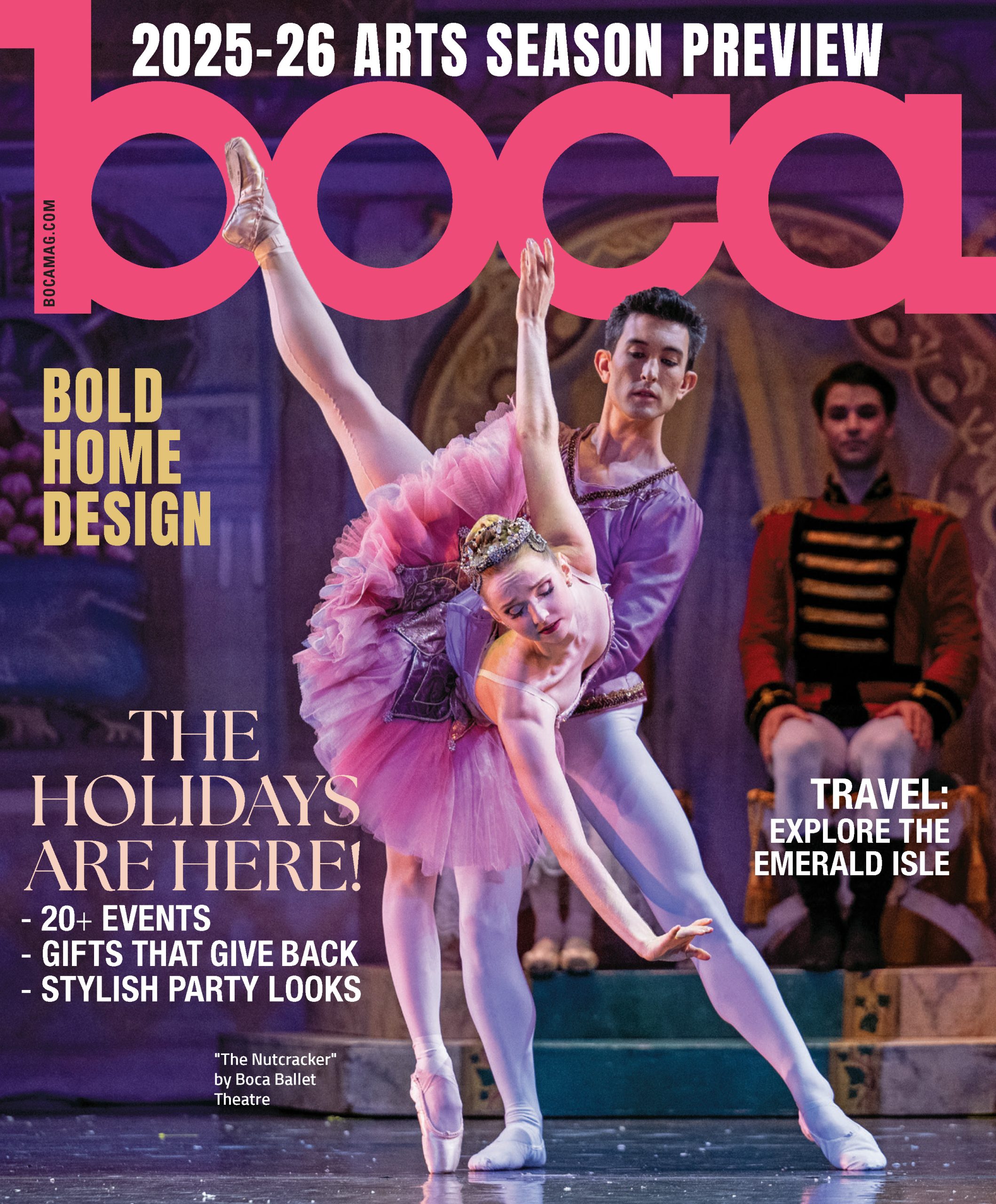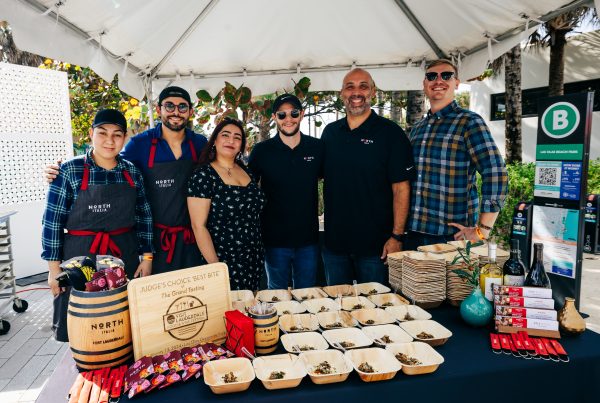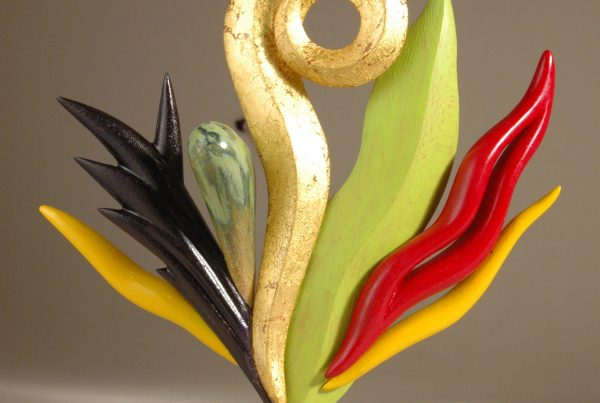As you’ve likely heard, broadcasting legend Larry King died Saturday at age 87. A cause of death was not provided on his verified Facebook account, though earlier this month he was hospitalized with COVID-19.
I had the opportunity to spend a generous half an hour with King, who has important career ties to South Florida, in advance of his January 2012 tour at the Kravis Center. Here is the interview in full, from the December 2011 issue of Boca and the Web Extra that accompanied it online.
When Larry King announced his retirement from CNN in June of 2010, few expected the suspendered interviewer to go quietly into the night. The 78-year-old talk-show icon has been in the communications business for more than 50 years, and he’s barely slowed down since bequeathing his interview show to Piers Morgan.
Over the course of several months following his CNN departure, King developed a live show – Broadway-ready, he says – that combines standup comedy and personal anecdotes from his childhood in Brooklyn through his extensive career in broadcasting. It’s a career that began in a tiny Miami Beach radio station in 1957 and continued for 20 years on local station WIOD before his pioneering call-in show went national. King is looking forward to his South Florida homecoming in January, where “Larry King: Standing Up” will hit the Kravis Center and the Seminole Hard Rock in Hollywood. Keep an eye out for King that week – he’ll be the guy wearing Ryan Seacrest’s jeans.
What prompted this comedy tour?
For all the years I was on radio and television, I always did speaking. I must have emceed 10 dinners a year. And I always worked funny. I think I would have been a comic if I hadn’t gotten into broadcasting. So when I finished at CNN, my nephew Scott Zeiger, a top Broadway producer, had seen me speak, and he said to me, “You know – why don’t you put together an act, just tell your funny stories and go on a little tour?” I said, “OK, let’s see if it works.”
Are you prepared for the rigors of touring?
Yes, as long as you space them nice. In Florida, they space it so it really is a week, and you work four different cities. It’s not rigorous; it’s a 90-minute show. Most people work eight hours a day. I’ve never worked eight hours a day.
Did you seek the counsel of any professional comedians when you were developing this show?
No, but I love comics; they’re my favorite people. I know what they face. Think about a comic – a comic goes on to a cold stage, and he doesn’t have the backup of a song or an orchestra or a play. It’s just him or her, and they’re either laughing or they’re not laughing.
It’s like Jerry Seinfeld said in his documentary film “Comedian;” he has great name recognition as soon as he walks onstage, but then if he doesn’t come up with something new that makes people laugh, he’s just like anybody else.
Bob Hope told me once that the well-known person has a minute. You’ve got a minute that the not well-known person doesn’t have. In that minute, they don’t have to laugh; you can engage them a little about what a pleasure it is to be in West Palm Beach, etc. Once the minute’s over, you better make ‘em laugh. You have another edge, though. One, If they know you and they like you, you’ve got a little bit coming in the door. And two, they want to be entertained. People going to see someone who makes them laugh want to laugh. So you have that plus. You have a lot of edges, but you can still bomb. Nobody’s perfect every night, and so far we’ve been real lucky. There are some nights that some laughs fall in different places.
Your performances in South Florida are a homecoming for you, since you launched your broadcasting career here. Can you share a story from your beginnings in the local radio business down here?
One of the most interesting stories is the day I broke in. I was a 22-year-old who always wanted to be in broadcasting, and didn’t want anything else. My father died when I was just 9 and a half years old. I graduated high school and never went to college. I did a bunch of odd jobs. When my younger brother graduated, a friend told me, “What don’t you go down and try to break in now? Your brother can go to work and help your mother. Why don’t you give it a shot?” And my uncle had a little apartment in Miami Beach, so I took the train down there, stayed with him and went around knocking on doors. I’d never been in front of a microphone. I went to a small station, WAHR, opposite the police station in South Miami Beach, a dinky little 500-watt station. The manager gave me a mic test and said, “You sound pretty good. We have a lot of turnover here, and we don’t pay a lot, so at the first opening, you’ll get a job.” A man quit, and two weeks later they told me I was starting. I hung around the station for those two weeks, by the way, learning how to rip and read and how newscasts came in, etc.
I started May 1, 1957, where I had a disc jockey show from 9 to noon in the morning and news and sports in the afternoon. On my first day on the air, I was up all weekend. I couldn’t sleep. I was so nervous. I was ready to go on; I had my records picked out. The general manager called me at a quarter to 9; I’m going on in 15 minutes. And he said, “What name are you going to use?” I was shocked. My name was Larry Zeiger, and that’s the name I thought I was going to use. You could use that name now, but he said, “It’s too ethnic. People won’t know how to spell it. You have to come up with another name.” So he had the Miami Herald in front of him, and there was an ad open for King’s Wholesale Liquors. And he said, “How about Larry King?” I said, “OK I’m Larry King.” I had my name legally changed.
So I’m ready to go on the air, and nothing’s coming out. I’m fading the music, and I’m scared to death. I’m looking at the clock; it’s like three minutes after 9. All the audience is hearing is a record going up and down, up and down. I’m panicked, and I said to myself, “All I wanted is to do is this all my life, and now I don’t have the guts. I don’t have it in me.” And the general manager kicked open the door to the control room, and he yelled, “This is a communications business, damn it! Communicate!” What I did was I turned the mic on, and I learned something that day that I’ve used ever since, which is that broadcasting is not brain surgery, and if you’re honest with your audience you can’t go wrong. They’re either going to like you or not like you. You can’t make them like you, so I turned the mic on, faded the record, said, “Good morning, my name is Larry King.” It was the first time I had ever said that, and I was never nervous again, ever, in television or radio.
I always knew that no matter what happened, I would be honest with the audience. If you were listening that day, if I scratched a record, it’s the first day. If I missed a cue on a commercial, it’s the first day. You can’t go wrong. I learned something that day, and it started the whole career.
That’s a great story. It sounds like something out of that old Woody Allen movie, “Radio Days.”
That was one of my favorite movies. Of course, radio was my life growing up. I knew all the radio shows, I used to imitate them. … I wanted to be in radio when I was 5 years old. I don’t know why. I was just drawn to it. I was drawn to this little box on top of the dresser, where voices came out and created a whole new world for me – the world of imagination, that could make me feel I was flying, or that I was on top of a mountain, or riding in the old west. As kinetic and important as television is, the one thing it can’t do that radio always did is the theater of the mind.
I assume the talk radio you did in your time was a lot different than the talk radio people think of today when they hear the term.
Some people think I invented it. I certainly started national call-in talk. Talk radio when I started wasn’t called talk radio. It was called “The Larry King Show,” and there was music all day and I would come on and interview people. Then it started to catch on, and the Mutual Network got it and took it national. It was embryonic, and I was proud to be at the beginning of it. When I went into the Radio Hall of Fame, they announced I was the starter of it, and I’m very proud of that.
Now, I’m not proud of a lot of what I hear today. A lot of it is screaming. It’s all agenda radio; the host, whether liberal or conservative, has a point of view and drums it into you. Often, the guest is a prop for the host. The host talks more than the guest. When you turn on a show, 95 percent of the time, the guest should be talking. That is not true today. You turn on any talk show, and the odds are the host is talking.
Yes, it’s the opposite – the hosts interrupt the guests.
Which I never did. It’s just different; that’s the nature of the beast. I hope it’s cyclical. I hope there’s some young talent out there today that’s doing interviews, that’s listening, that doesn’t have an agenda, that is informing and entertaining at the same time. You have to entertain. But you also have to inform. It’s not a soapbox. I don’t learn anything from a lot of these shows today. I hear a lot of yelling and a lot of screaming and dragging down of people. That never worked for me.
You managed to get a very rare interview with Frank Sinatra in your early days in South Florida radio. How did you get him to open up when he didn’t open up to anybody else?
Once I got a guest down, I was never nervous about that. I was curious, and I was able to show the guest through my curiosity that I was interested in him – not who he was sleeping with, but his art, his work, his career and how it came about, in how he approached what he does. And any guest, when you can show them that, with short questions, and you make good eye contact, it really isn’t hard. Sinatra was a piece of cake.
When you were down here, you covered the Miami Dolphins for a bit as well as politicians and entertainers. It seems like most reporters today are versant in one particular area. Did you have to be more of a jack of all trades to succeed back then?
I always was. I prided myself on an interest in lots of things – in physics, in architecture, in sports, in politics, in entertainment, in law, in debate. The more variety, the better. With the Dolphins, I was there at their birth when they came into Miami, and I was lucky enough to do color. I still feel a close affinity to Don Shula and everyone down there, and I’m really looking forward to coming back.
Will you still be wearing your suspenders on this tour?
I will be wearing suspenders and really stylistic jeans given to me by Ryan Seacrest, my jeans supplier. I will have boots, a nice tie, a really good-looking shirt, and my presence will be felt.
For more of Boca magazine’s arts and entertainment coverage, click here.







